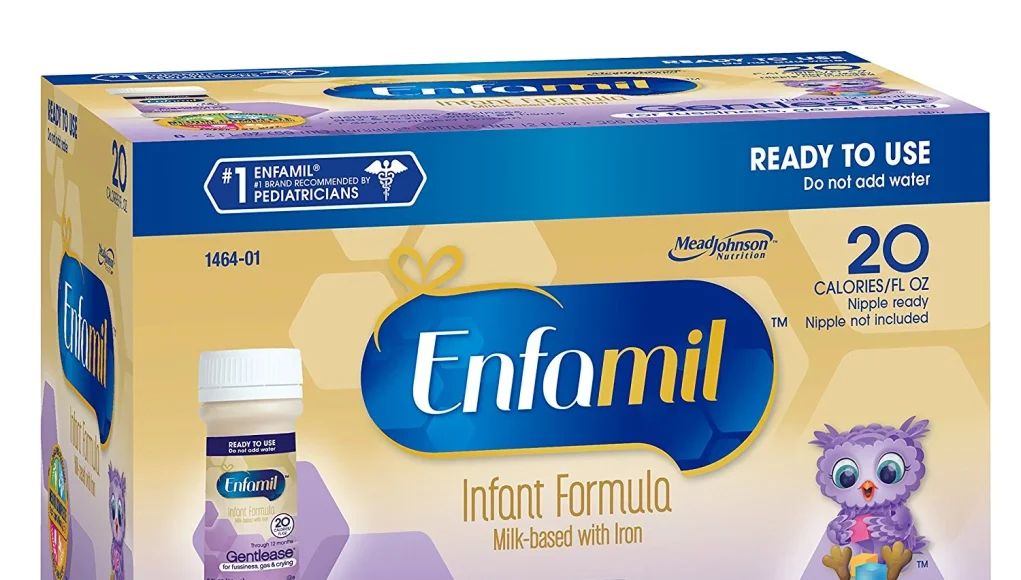When it comes to feeding babies with allergies, hypoallergenic formulas play a crucial role in ensuring their health and comfort. But what exactly sets these formulas apart from regular infant formulas? Understanding the differences can help you make an informed decision about the best option for your baby. Here’s an overview of what makes hypoallergenic formulas unique and how they cater specifically to formula for babies with allergies.
Key Features of Hypoallergenic Formulas
1. Hydrolyzed Proteins
One of the primary differences in hypoallergenic formulas is the presence of hydrolyzed proteins. In formula for babies with allergies, these proteins are broken down into smaller fragments through a process called hydrolysis. This breakdown makes the proteins less likely to trigger an allergic reaction. There are two main types of hydrolyzed formulas:
- Partially Hydrolyzed Formula: Proteins are broken down into smaller pieces but not as extensively. This type may be suitable for babies with mild allergies or sensitivities.
- Extensively Hydrolyzed Formula: Proteins are broken down into even smaller fragments, making it less likely to cause an allergic reaction. This formula is often recommended for babies with moderate to severe allergies.
2. Amino Acid-Based Formulas
For babies with severe allergies or those who do not tolerate hydrolyzed proteins, amino acid-based formulas are a suitable alternative. These formulas contain proteins broken down into their simplest components: amino acids. Since amino acids are the building blocks of proteins and do not contain intact proteins, this formula for babies with allergies is the least likely to provoke an allergic reaction.
3. Free from Common Allergens
Hypoallergenic formulas are typically designed to be free from common allergens such as cow’s milk proteins, soy proteins, and gluten. This reduces the risk of allergic reactions and makes them a safer option for babies with specific dietary sensitivities. When selecting a formula for babies with allergies, ensure that it is free from allergens that your baby might be sensitive to.
4. Enhanced Nutritional Composition
Despite being designed for sensitive systems, hypoallergenic formulas are formulated to provide complete nutrition. They are fortified with essential vitamins, minerals, and other nutrients needed for healthy growth and development. The nutritional balance in these formulas ensures that babies with allergies receive the same level of nourishment as those on regular formulas.
Benefits of Hypoallergenic Formulas
1. Reduced Risk of Allergic Reactions
The primary benefit of hypoallergenic formulas is the reduced risk of allergic reactions. By breaking down proteins or using amino acids, these formulas minimize the likelihood of triggering allergies and provide a safer feeding option for sensitive babies.
2. Support for Healthy Growth
Hypoallergenic formulas are designed to support healthy growth and development while addressing specific dietary needs. They are enriched with nutrients to ensure that babies with allergies receive adequate nourishment.
3. Improved Digestibility
The hydrolyzed proteins in hypoallergenic formulas are easier for babies with allergies to digest. This can help reduce symptoms such as colic, gas, and discomfort that might be associated with traditional formulas.
Choosing the Right Hypoallergenic Formula
When selecting a hypoallergenic formula for babies with allergies, it’s essential to consult with your pediatrician. They can help determine the most appropriate formula based on your baby’s specific allergy profile and nutritional needs. Additionally, consider the following:
- Type of Allergy: Choose a formula that addresses your baby’s specific allergies, whether it’s cow’s milk protein, soy, or other common allergens.
- Age and Development: Ensure that the formula is suitable for your baby’s age and developmental stage.
- Observing Reactions: Monitor your baby’s response to the formula and make adjustments as needed, based on guidance from your healthcare provider.
Conclusion
Hypoallergenic formulas are specifically designed to meet the needs of babies with allergies by breaking down proteins, eliminating common allergens, and providing essential nutrients. By understanding the unique features and benefits of these formulas, you can make a more informed choice and help ensure that your baby receives the best possible care. Always consult with your pediatrician to select the most suitable formula for your baby’s specific needs.




